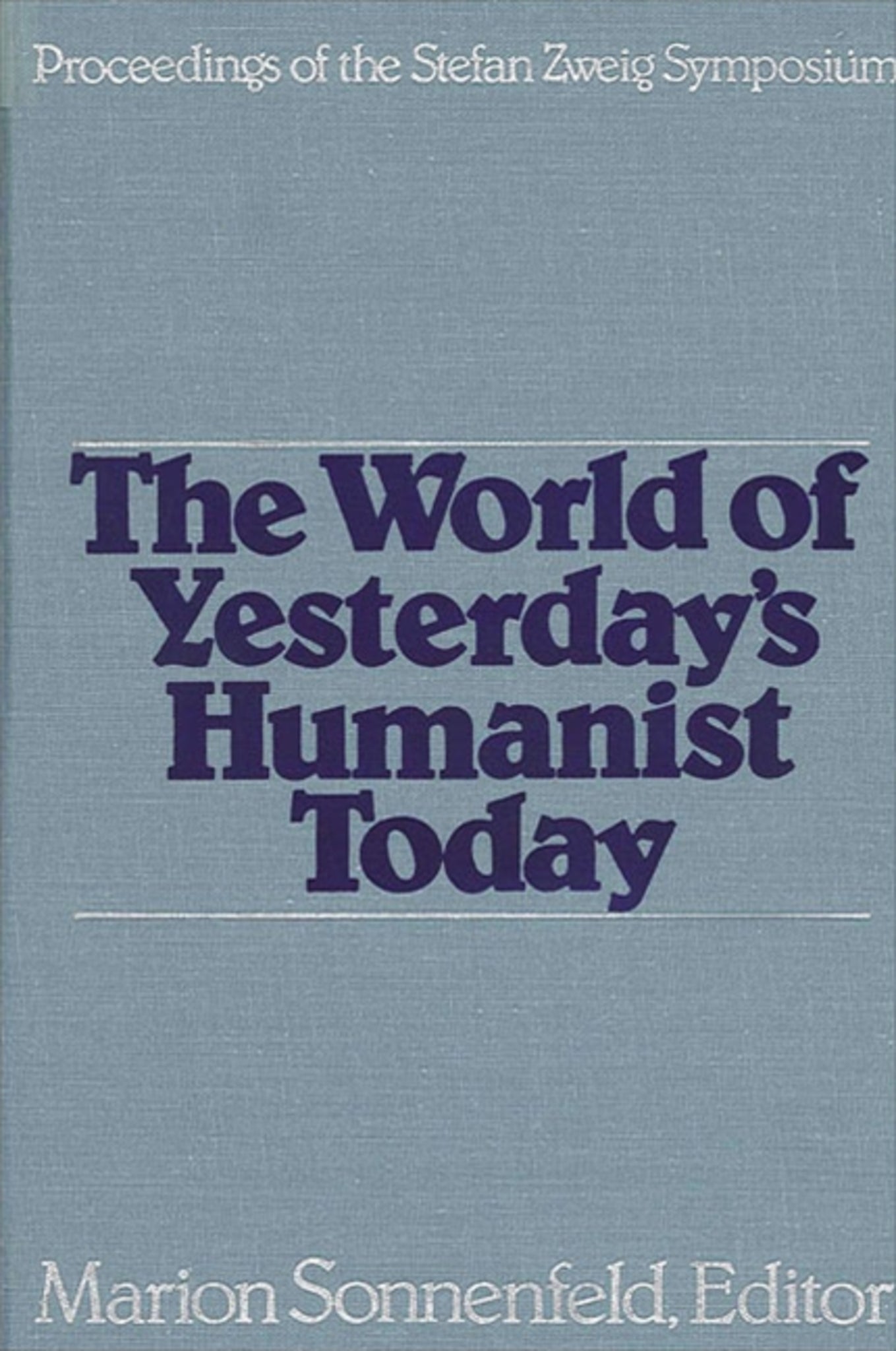We're sorry. An error has occurred
Please cancel or retry.
The World of Yesterday's Humanist Today

Some error occured while loading the Quick View. Please close the Quick View and try reloading the page.
Couldn't load pickup availability
- Format:
-
30 June 1984

Fifty years ago, Stefan Zweig, who committed suicide in 1942, was the most widely read and translated living writer in the world. Zweig's Vienna was a world of bright, brittle superficialities, in which the bourgeoisie "gradually elevated the eternal business of seeing and being seen to the purpose of the existence." To break through the facades of this society, Zweig developed a remarkable literary and psychological method.
In The World of Yesterday's Humanist Today, thirty scholars of history, literature, and music share their studies of Zweig and their insight into his works.


Preface
Keynoters
Georg Iggers, Some Introductory Observations on Stefan Zweig's World of YesterdayZweig and France
Wilma Iggers, The World of Yesterday in the View of an Intellectual Historian
Andree Penot, Coordinator
Helene Kastinger Riley, The Quest for Reason: Stefan Zweig's and Romain Rolland's Struggle for Pan-European UnityZweig and Judaism
Brenda Keiser, Stefan Zweig: The Man of the Hour and the Consistent Humanist
Clair Hoch, Friendship and Kinship between Georges Duhamel and Stefan Zweig
George Browder, Coordinator
Leo Spitzer, Into the Bourgeoisie: A Study of the Family of Stefan Zweig and Jewish Social Mobility, 1750-1880)Zweig's Interpretation of History
Leon Botstein, Stefan Zweig and the Illusion of the Jewish European
Klara Carmely, The Ideal of Eternal Homelessness: Stefan Zweig and Judaism
Julius Paul, Coordinator
Stephen Howard Garrin, History As Literature: Stefan Zweig's Sternstunden der MenschheitZweig the Humanizer in Literature
Lionel B. Steiman, The Worm in the Rose: Historical Destiny and Individual Action in Stefan Zweig's Vision of History
Marion Sonnenfeld, Coordinator
David Turner, The Humane Ideal in Stefan Zweig's Noyelle: Some Complications and LimitationsZweig and Richard Strauss
Anne Clark Fehn and Ulrike S. Rettig, Narrative Technique and Psychological Analysis in Two Novellas by Stefan Zweig
Gerd Schneider, Portrayal of the Elderly in Stefan Zweig's Novella "Vierundzwanzig Stunden aus dem Leben einer Frau"
Peter J. Marcris, Zweig As Dramatist
Donald G. Daviau, The Spirit of Humanism as Reflected in Stefan Zweig's Dramatic Works
Joseph Strelka, Stefan Zweig's "Big Balzac"
A. Cutler Silliman, Coordinator
Bryan Gilliam, Zweig's Contribution to Strauss Opera and Die Schweigsame Frau: New EvidenceZweig the Coorespondent
Michael P. Steinberg, Politics and Psychology of Die Schweigsame Frau
John Saulitis, Coordinator
Johanna Roden, Stefan Zweig and Emil LudwigZweig the Emigrant
Robert Rie, Coordinator
Editha S. Neumann, Stefan Zweig: A Wanderer between Two WorldsZweig in Brazil
Rosi Cohen, Emigration: a Contributing Factor to Stefan Zweig's Suicide
Osvaldo Chinchon, Coordinator
Sonja Karsen, Brazil As Seen by Stefan ZweigClosing Address
Erdmute Wenzel White, Beyond Memory: Stefan Zweig's Last Days
Jean-Jacques Lafaye, Stefan Zweig and Georges Bernanos in Brazil: An Encounter
Frances Hernandez, The Zweigs and Gabriela Mistral in Petropolis
Alberto Dines, Death in Paradise: Some Revelations About Stefan Zweig's Presence in Brazil
Harry Zohn, The Buring Secret of Stephen Branch, or a Cautionary Tale About a Physician Who Could Not Heal HimselfAppendix: Zweig Today
Mimi Grossberg, Zweig in FilmSymposium Program
Henry Salerno, Carol Brownson, Robert Deming, David Meerse, James Shokoff, Comments on Letter from an Unknown Woman
Randolph Klawiter, The State of Stefan Zweig Research: An Update
Index compiled by Yvonne Wilensky



